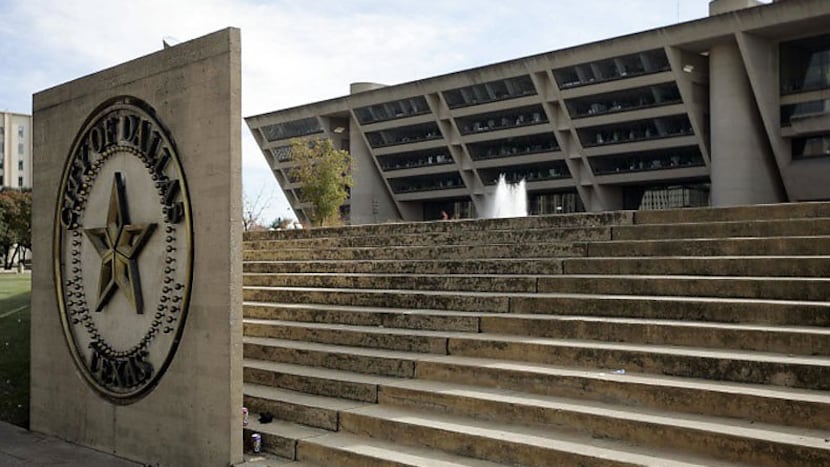Dallas city leaders may re-evaluate the model of governance used to run their community. Pursuant to Chapter 2, Section 3 of the City Charter, the City Charter “shall be reviewed by a committee appointed by the City.” [city council]” The next review of the Charter is expected to be completed by May 21, 2024 at the latest.
It is during these periodic charter reviews that the most impactful changes to our system of government are made. Should the composition of the council be changed? Should we institute a strong mayoral model? Should we move to a partisan electoral system? These are the main types of proposals considered by the committee.
We hope that the Committee will consider the following points in its latest assessment:
One of the most revealing moments in my political career was during one of the culture war battles that always seemed to erupt at the end of the biennial regular session, when a Texas state congresswoman It happened when I was working at
It was a crisp June evening, and we were discussing Senate Bill 5. The bill would ban all abortion procedures involving pregnancies beyond 20 weeks of pregnancy, a decidedly archaic position by today's post-Dobs standards. After filibustering for 13 hours without even drinking breath mints, Sen. Wendy Davis wore her fabulous pink sneakers and successfully defeated the bill in the regular session.
Not to be outdone, Gov. Rick Perry immediately called a special legislative session, where SB 5 was featured prominently, along with a variety of other bills. The night after Davis' historic filibuster, the House of Peoples was set to reconsider the controversial bill.
Every seat in the House bleachers was filled with either supporters or opponents of the bill. The rotunda was a loud circus of protesters, signs, chants, and an excited atmosphere. In one fetid instance, an angry demonstrator attempted to throw his personal bodily fluids on those gathered in the chamber, but fortunately to no avail. On the hallowed grounds of the Texas State Capitol, thousands of spectators gathered outside to jeer and cheer on the bill, which will ultimately directly impact less than 1 in 100 of all Texans. I could see that.
Despite the protests, the bill was quickly passed without any problems.
The scene surrounding this bill was unlike anything I had ever seen in politics. This issue has sparked so much anger, vitriol, violence, hatred, and heartfelt tears that I can never fathom. I recognized that this was a very personal issue, but I looked at it from a policymaker's perspective. “Does this bill advance or set back the public interest?” That's always been my lens. And in this example, my lens was significantly out of focus.
The following evening, the House of Representatives will consider a bill that would create a statewide water plan that would benefit all Texans. The project will provide life-giving water to millions of Texas farmers and rural county residents who have lost their lives to drought. The Texas Water Plan will create reservoirs, desalination plants, stormwater ponds, and water conservation strategies that will support all Texans for a generation. As a co-author of this bill, it was a bill that I was extremely proud of.
That night, as the most significant Texas infrastructure bill in 100 years was approved, I looked up and surveyed the witnesses to this monumental testament to good governance. There was no one in the gallery. No one was protesting in the rotunda. No signs were waved on the capital's grounds. You approved a water plan that benefits 27 million Texans, so just shut up.
It was at that moment that I realized that the simple deterrence and efforts of a thoughtful government would never be able to match the raw passion that drives partisan politics. Filling holes for first responders and strengthening our pension system is an exercise in civic responsibility, not partisanship.
Republicans and Democrats agree that accessible, safe green space is a good thing for neighborhoods. The same goes for predictable traffic patterns, crime-free streets, and a world-class education system for our children.
Divisive issues such as abortion, gun control, and illegal immigration fuel national emotions and lead to sharp disagreements. Partisan political systems are designed to deal with these disagreements. Because based on the jersey color (red or blue) our elected officials wear, we know where they stand on these divisive issues. , because we vote for the jersey with the most favored color. It represents our unique perspective.
In Washington, D.C. and Austin, partisan systems make sense because voters want guidance on controversial issues. However, such a system has little to do with city hall. As I learned when I ran for mayor of Dallas in 2019, utility poles and drain pipes are neither conservative nor liberal. The people I met on my runs were more interested in keeping our communities safe, our parks clean, and our economy strong than in fighting over issues that don't directly impact our daily lives.
Dallas wants a nonpartisan system of government, according to someone who witnessed how sausages are made in Austin. The hole will not be filled by Republicans or Democrats. These are met by working together to find solutions to the complex challenges we face as a city.
Jason Villalba is chairman and CEO of the Texas Hispanic Policy Foundation and a partner at Frost Brown Todd LLP. He served in the Texas House of Representatives from 2013 to 2019.
We welcome your feedback in a letter to the editor. Please refer to the guidelines. Submit your letter here. If you have any problems with the form, you can email it to: Letters@dallasnews.com


